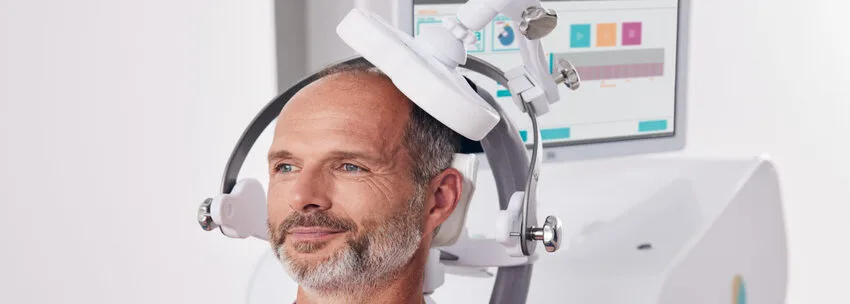Anxiety Treatment with TMS
When it comes to treating anxiety, TMS treatment has shown promising outcomes. It is especially beneficial when other therapies, such as medicines have failed. TMS treatment can not entirely eliminate anxiety, but it helps alleviate symptoms and can result in considerable improvements for patients.
How Long Does a TMS Procedure Take?
TMS therapy is delivered in a series of treatment sessions. The length of a session is determined by the TMS coil utilized and the number of pulses delivered. On the other hand, a session normally lasts between 30 and 40 minutes. TMS is administered to patients five days a week, and a typical course lasts four to six weeks. This, however, might vary depending on how a patient responds to therapy.
How Does it Work?
It works by focusing on the region of the brain that is in charge of mood regulation and depression. People who suffer from depression are thought to be dealing with a region of their brain that is not as active as it should be. The activation of the electromagnetic coil stimulates the underperforming portion of the brain. While the specific mechanism is unknown, there is evidence that the stimulation activated the brain and alleviated depressive symptoms.
While the treatment is modified in various ways, it is widely agreed that the intensity and frequency of the pulses should be decided by the patient’s motor control threshold. This is established by the twitches noticed by the clinician administering the treatment. Because the treatment is non-invasive and performed without anesthesia, the patient may drive themselves home and avoid missing further work. TMS, on the other hand, should be avoided in certain circumstances. It is critical to be completely honest with your doctor in order to determine whether TMS is appropriate for your circumstance.
Side Effects
TMS, like everything else, has side effects. However, the most common side effects are minor, and anything more serious is quite rare. Common side effects include:
- Discomfort at the site of stimulation
- Headaches
- Lightheadedness
- Tingling, spasms, or twitching of muscles
Find the Right Therapy
Seeking recovery from addiction is sometimes a more difficult journey than individuals think. There is no cookie cutter solution for addiction treatment. Every person is unique, and what works for one person may not work for another. If you or someone you care about relapsed after completing recovery, it may not be your fault. Rather, the care you received may not have been adequate. If you feel you might benefit from TMS, please contact a treatment provider. They can advise you on rehabilitation alternatives.
